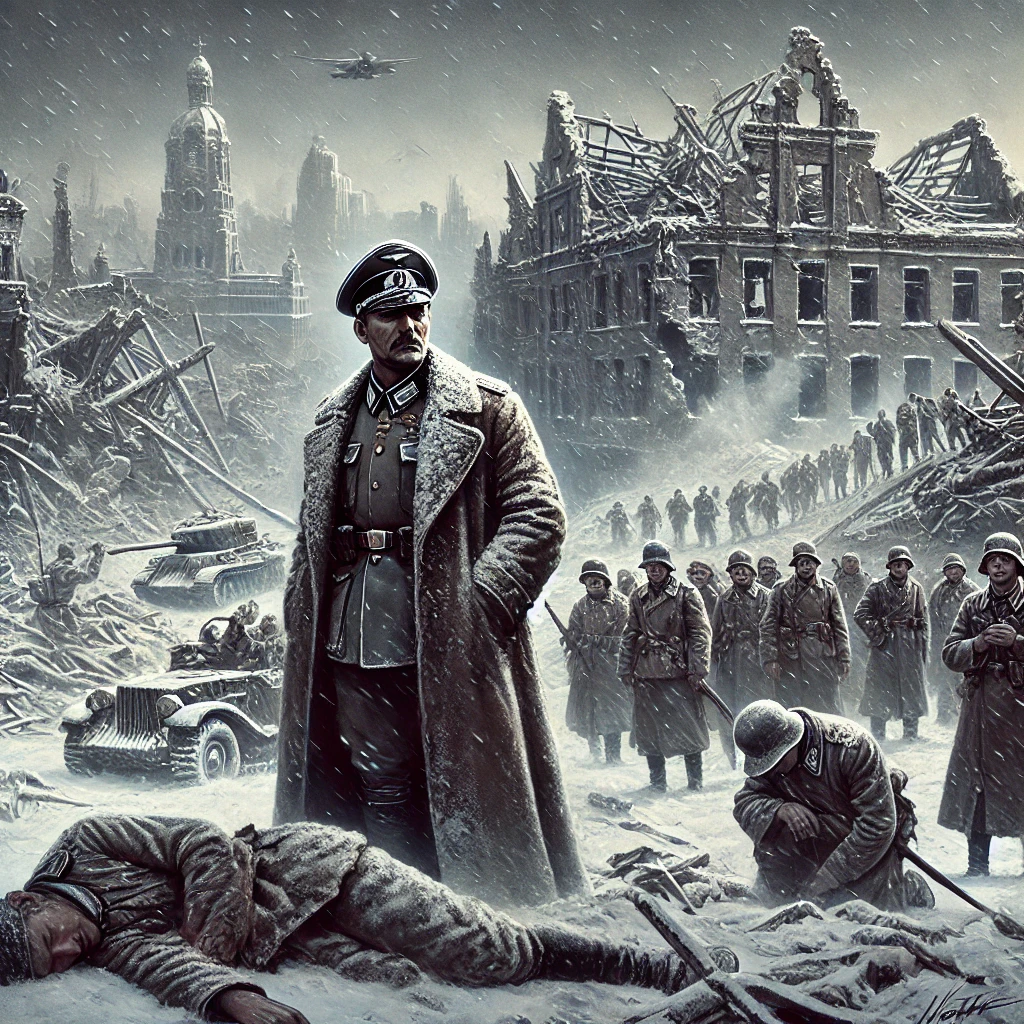General Paulus
The Field Marshal who rebelled against Hitler

General Friedrich Paulus, commanding the German 6th Army in Stalingrad, became the protagonist of one of the most dramatic choices of the Second World War. After months of fierce fighting in the ruins of the city, with the German soldiers exhausted and surrounded, he received orders from Hitler to resist until death. But, on 31 January 1943, facing total annihilation, Paulus made an unprecedented decision - Image generated with IA
General Friedrich Paulus was a famous German army officer during World War II. His fame is due to his role as general of the German Sixth Army during the Battle of Stalingrad, one of the bloodiest battles of World War II. Paulus entered Stalingrad in the summer of 1942 with orders to take the city on the Volga, key in Hitler's plans to facilitate a German advance towards the Soviet oil deposits in the Caucasus and ensure essential supplies for the German war machine. However, the battle did not go as planned and the German soldiers found themselves fighting against fierce Russian resistance, house to house, sometimes even in bloody hand-to-hand combat.
After months of bloody fighting and the almost total destruction of the city, Paulus' troops were surrounded by Soviet troops in November 1942 and the situation became desperate. Paulus had realised the inevitability of defeat, but received an unexpected order from Hitler: to resist until death without offering any surrender. The German troops were at the end of their tether: no supplies, little ammunition, tried by the winter frost and the incessant Russian attacks which, heedless of casualties, threw wave after wave of thousands of men to the slaughter.
Hitler appointed General Field Marshal in the hope that the new appointment would incentivise him to heroic resistance. Paulus was faced with a moral and tactical dilemma, but he made his decision. On 31 January 1943, for the first time in the history of the German army, a field marshal, Paulus, surrendered to the enemy, deciding to negotiate with the Soviets and save the lives of his men. This decision marked a turning point in the Russian campaign, boosting the morale of Stalin's troops and bringing about the beginning of the catastrophic German retreat. After the war, Paulus openly sided against the Nazis and even decided to testify at the Nuremberg trial. His story reflects the complexity and tragic nature of war, where sometimes the line between good and evil is blurred and uncertain.
-
Beevor, Antony. Stalingrad: The Fateful Siege: 1942-1943. New York: Penguin Books, 1999.
-
Glantz, David M., and Jonathan M. House. Armageddon in Stalingrad: September-November 1942. Lawrence: University Press of Kansas, 2009.
-
Craig, William. Enemy at the Gates: The Battle for Stalingrad. New York: Penguin Books, 2000.
-
Britannica, T. Editors of Encyclopaedia. "Friedrich Paulus." Encyclopedia Britannica, September 19, 2024.
Toniatti Francesco - Docente di Storia e Studi Orientali, Master of Arts in International Relations
2025-09-12
Francesco Toniatti
